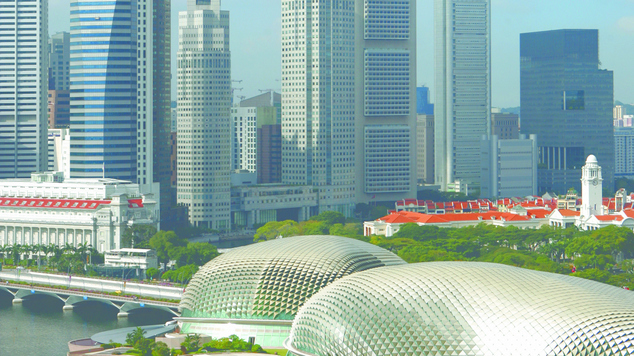
Singapore’s Supreme Court has ruled that laws that discriminate against same sex couples are not unconstitutional. The move is a major set back for LGBTIQ activist in the island nation.
Human Right’s Watch described the decision as, “a message that gay men may lawfully be subject to discrimination.”
Section 377A of the Singaporean Criminal Code declares that men who engage in ‘gross indecency’ privately or publicly can be jailed for up to two years.
In July, Singaporean couple Garry Lim and Kenneth Chee, who have been a couple for 16 years, launched an appeal alongside another Singaporean man Tan Eng Hong. Mr Tan had been arrested in 2010 for allegedly engaging in a sexual act with another man.
The trio argued that the law that forbids homosexual activity contravened sections of the nation’s constitution. The stance was that the constitution guaranteed the right to life and personal liberty, and declared that all people are entitled to equal protection before the law.
The Supreme Court rejected the appeal from the groups lawyers stating that it was up to legislators to determine what the laws would be.
“The Supreme Court’s decision is a terrible setback for homosexual people in Singapore who want to live their lives like everyone else, without government interference,” said Boris Dittrich, advocacy director of the lesbian, gay, bisexual and transgender (LGBT) rights program at Human Rights Watch. “The ruling tramples upon basic rights to privacy, equality, and non-discrimination.”
While polls shows that the majority of Singaporeans are against homosexuality there has been growing tolerance, most notably expressed through the success of annual LGBTIQ gathering Pink Dot.
Local activist group also expressed their disappointment with the ruling.
“While we appreciate the court’s position that it cannot assist in providing a judicial remedy to what it views as a legislative issue, we cannot accept its narrow interpretation of the constitution in this regard,” said a statement signed by 14 local lesbian, gay, bisexual and transgender rights groups.
The court’s ruling, at the end of a four year long legal journey, now puts the onus back on the nations’ legislators. The last time Singapore reviewed laws in this area was in 2007 when laws criminalising heterosexual oral and anal sex were removed.
Alongside LGBTIQ rights groups, who are becoming more vocal, there is also pressure from business groups to change the law. The country has a large banking and finance industry that relies on multi-national companies being able to send staff to Singapore. As same sex marriage becomes more common in America and the United Kingdom more companies are highlighting the challenge of sending gay staff to their Singaporean offices.
The law which was inherited from the nation’s time as a British Colony is not actively enforced but carries a two year jail sentence.
image: Singapore (istock)




